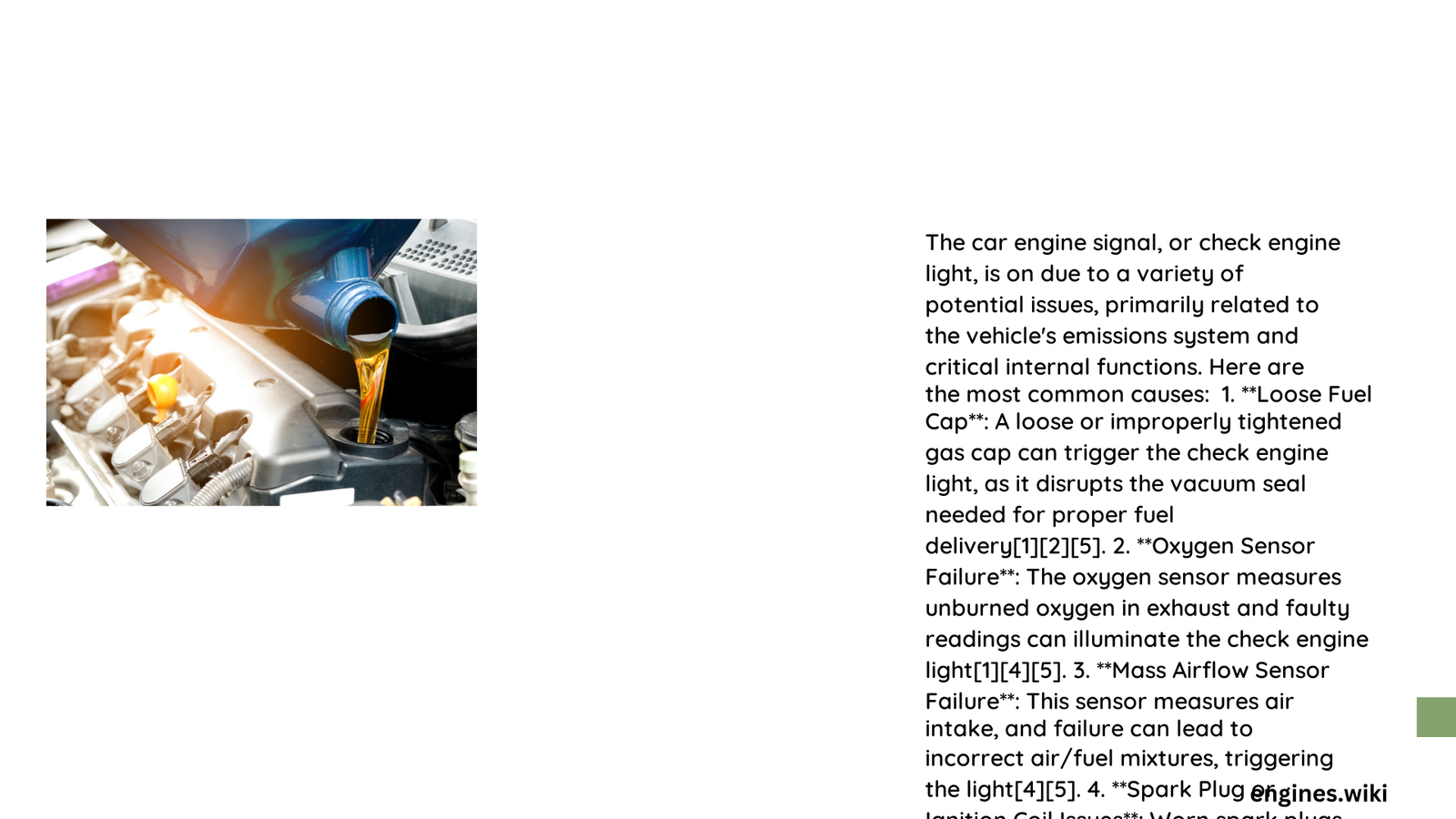Modern vehicles are complex machines with sophisticated monitoring systems designed to alert drivers about potential problems. When your car’s check engine light illuminates, it’s not just a random warning but a critical signal indicating something needs immediate attention. This comprehensive guide will help you understand the intricate reasons behind why your car engine signal is on, providing insights into technical diagnostics, potential issues, and recommended actions.
What Triggers the Check Engine Light?
Emissions System Complications
Can a Loose Gas Cap Cause Check Engine Light?
Yes, a loose or damaged gas cap is one of the most common and simplest reasons for the check engine light. When the fuel system’s pressure drops due to an improperly sealed gas cap, sensors detect this anomaly and trigger the warning.
| Issue | Potential Cause | Estimated Fix Time | Cost Range |
|---|---|---|---|
| Loose Gas Cap | Fuel System Pressure Drop | 5-10 minutes | $0-$20 |
| Oxygen Sensor Failure | Emissions Monitoring Disruption | 1-2 hours | $200-$500 |
| Catalytic Converter Problem | Exhaust System Inefficiency | 2-4 hours | $500-$2,000 |
Fuel System Challenges
What Sensors Affect Fuel Performance?
Several critical sensors monitor fuel system performance:
- Mass Airflow Sensor: Measures incoming air volume
- Oxygen Sensor: Tracks exhaust gas composition
- Fuel Pressure Sensor: Monitors fuel system pressure
Ignition System Failures
How Do Spark Plugs Impact Engine Performance?
Faulty spark plugs can cause:
– Reduced fuel efficiency
– Engine misfires
– Decreased acceleration
– Potential long-term engine damage
Diagnostic Trouble Codes (DTCs)
What Do Different Check Engine Light Codes Mean?
Common diagnostic codes include:
– P0171: System Too Lean (Fuel Mixture Issue)
– P0300: Random/Multiple Cylinder Misfire
– P0420: Catalytic Converter Efficiency Below Threshold
Potential Repair Strategies
When Should You Seek Professional Help?
Consider professional diagnostics if:
– Check engine light is flashing
– Performance noticeably decreases
– Multiple diagnostic codes appear
– You lack specialized diagnostic tools
Prevention and Maintenance
How Can You Prevent Check Engine Light Issues?
- Regular vehicle maintenance
- Use high-quality fuel
- Address minor issues promptly
- Annual professional inspections
Conclusion

Understanding why your car engine signal is on requires a systematic approach. While some issues are minor and easily resolved, others demand professional intervention. Always prioritize your vehicle’s health and address warning signals promptly to prevent costly repairs.
